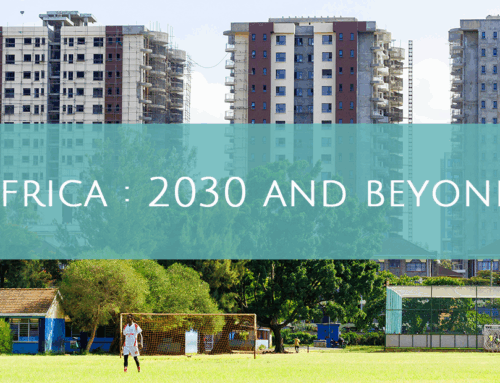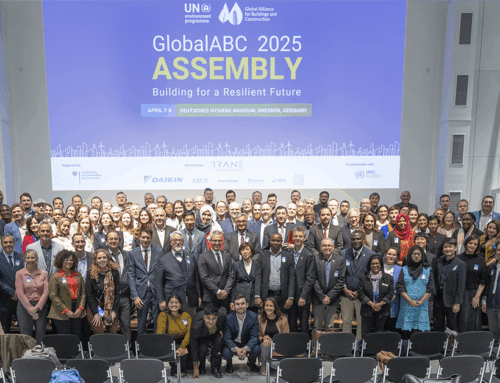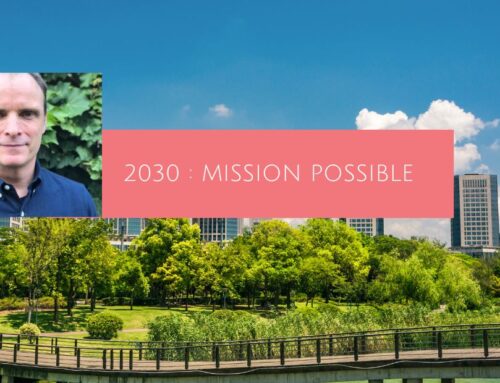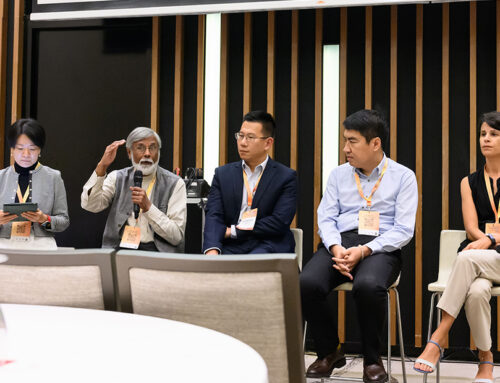When it comes to climate policy, the recurring debate is whether the issue lies in the lack of policies, or is it the failure to implement existing ones effectively. Bishal Thapa, Senior Director India Program at CLASP shares that while there is always room for more policies, the critical issue often lies in their implementation. “Improving policy effectiveness involves understanding the constraints and challenges faced by decision-makers”, says Mr. Thapa. “This requires providing them with evidence, narratives, and technological solutions to ensure they make informed decisions that balance interests and risks.”
Mr. Thapa’s insights are based on 22 years of global experience working with a wide range of public and private sector partners across energy, climate, energy efficiency, and sustainability. An economist by training, his expertise in financial analysis, quantitative modeling, policy, research, and project design, are all part of the evidence-based approach needed to support policymakers in their decision making.
Challenges Faced by the Global South
Mr. Thapa highlights that managing heat remains a growing challenge for the Global South. He recalls public service announcements in Delhi on coping with the heat, underscoring the severe impact of climate change on these regions. “The Global South must improve coordination to articulate its needs better, including financing, technology access, technical assistance, and market functionality.”
Addressing coordination by harmonizing appliance standards is an attainable solution. For instance, “China exports air conditioners with lower efficiency standards than those used domestically. The Global South needs to push for uniform standards and adopt high-efficiency technologies.” A successful example of regional collaboration is the African Lighting Amendment at the 4th Minamata Convention, which led to phasing out mercury-containing CFL lighting across 26 African nations. This shift not only aims to reduce mercury emissions but also has improved energy efficiency globally.
Building resilience is crucial for the Global South. Mr. Thapa emphasizes the need for access to technologies and appliances that support resilience, such as efficient irrigation equipment and cooling systems. Countries like India, Brazil, and Indonesia must lead these efforts, demonstrating leadership in negotiations to secure fair and just outcomes.
Addressing Affordability in the Global South
Affordability is a significant concern, especially in the Global South. Mr. Thapa explains that when people say a product is too expensive, it reflects various underlying issues beyond the product’s cost. High upfront costs, market uncertainties, and the inability to monetize the benefits of new technologies like solar water pumps contribute to perceptions of high cost.
“Addressing affordability requires looking at the broader ecosystem, including market linkages and risk reduction, not just reducing the cost of the technology. It is important to focus on the end user when addressing affordability. Interventions must make sense for the end user, considering their specific needs and circumstances. This approach aligns technology with user needs, ensuring that financing and affordability are addressed comprehensively.”
Technology and Innovation: Are We Behind?
Mr. Thapa acknowledges that while we have made significant technological advancements, we are not entirely where we need to be. A recent CLASP study, Net Zero Heroes, found that using the most efficient technologies today can get us part of the way towards net-zero emissions, but further innovation is essential. “Achieving net-zero targets requires more efficient appliances and equipment, such as the 5x air conditioner initiative, aiming for units that are five times more climate-friendly to neutralize the expected growth in the residential cooling sector over the next three decades.”
Climate change is a multi-dimensional problem requiring collaboration across various sectors, including technology, policy, government, markets, and civil society. CLASP’s approach is categorized into three intersecting buckets: planet, people, and appliances and equipment. “We are always asking what can we do around appliances and equipment, that addresses the need for the climate in terms of reducing emissions, but that at the same time is of interest to people in terms of access and resilience”. Mr. Thapa emphasized that a plurality of approaches are needed to advance solutions at speed and scale.
Enabling Government Decision-Making
Mr. Thapa highlights the complexity of government decision-making, especially regarding energy transitions. He cites India’s decision to accelerate the construction of coal plants despite its commitment to reducing emissions. This decision was driven by the urgent need to meet soaring energy demand, particularly for cooling products.
Providing governments with evidence-based solutions is crucial. Improving the efficiency of appliances and equipment can significantly reduce energy demand, potentially avoiding the need for new coal plants. Policymakers need to see that these solutions are technically feasible, financially viable, and commercially sensible. Mr. Thapa stresses the importance of honest and effective communication, ensuring that the public and policymakers understand the benefits and challenges of proposed changes.
Policies must also be inclusive. For example, small and medium enterprises (SMEs) in India produce half of the country’s fans. Transitioning to more efficient fan technologies must consider the capacity of these SMEs to adapt. Inclusive policies ensure that all stakeholders, including smaller players, are considered in the transition.
Climate Solutions as a Win-Win
Despite the challenge ahead, Mr. Thapa sees tremendous opportunities. He notes greater alignment amongst countries at the international level in creating frameworks for cooperation and being open to listening to smaller countries. Similarly, the speed of technological innovation is allowing climate solutions to reach previously inaccessible communities. “When addressing climate change, we are also tackling poverty, resilience, and livelihoods – which is inadvertently giving us new tools for old problems.”
Share This Story, Choose Your Platform!
Stay in touch with how we’re transforming the buildings sector
GBPN runs innovative building policy reform programs in key regions around the world that aim to tackle the climate emergency by decarbonising the buildings sector. Stay up to date with our newsletter.
Stay in touch with how we’re transforming the buildings sector
GBPN runs innovative building policy reform programs in key regions around the world that aim to tackle the climate emergency by decarbonising the buildings sector. Stay up to date with our newsletter.







